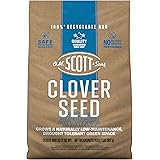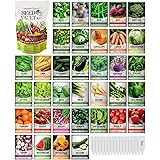DIIYIV 2PCS 12x4x1FT Galvanized Raised Garden Bed Kit,Vegetable Boxes-Rectangle Metal Flower Box,Large Planter Raised Beds Outdoor Garden for Planting,Fruit,Herb-Sliver
15% OffMeberam 2 Pack 6x3x1FT Galvanized Raised Garden Beds Kit Outdoor Metal Gardening Planter Box for Vegetable Elevated Flower Herbs,Silver
25% OffComposting has become an increasingly popular topic in recent years, and it’s no surprise why. With more people becoming aware of the importance of sustainability, composting offers a simple yet effective solution to reducing waste while also creating nutrient-rich soil for gardening. In this blog post, we will explore what composting is, its benefits for both your garden and the environment, how you can start composting at home, and common mistakes to avoid when doing so.
What Is Composting And Why It Matters?
Composting is the process of breaking down organic matter such as food scraps, yard trimmings, and animal manure into a nutrient-rich soil amendment called compost. This natural decomposition process is facilitated by microorganisms such as bacteria, fungi, and worms that break down the organic material over time. The end result is a dark, crumbly substance that is rich in nitrogen, phosphorus, potassium, and other essential nutrients needed for plant growth.
One of the main reasons why composting matters is because it helps reduce the amount of organic waste that ends up in landfills. Organic waste decomposing in a landfill releases methane gas, which is a potent greenhouse gas that contributes to climate change. By composting instead, we can divert this waste from landfills and turn it into a valuable resource for our gardens.
The Benefits Of Composting For Your Garden And The Environment
There are many benefits to composting, both for your garden and the environment. Here are just a few:
1. Improves Soil Health – Compost adds important nutrients to the soil, including nitrogen, phosphorus, and potassium, which help plants grow strong and healthy.
2. Reduces Water Usage – Compost helps retain moisture in the soil, which means you won’t have to water your plants as often.
3. Promotes Plant Growth – Compost provides beneficial microbes that help plants absorb nutrients and fight off diseases.
4. Reduces Waste – As mentioned earlier, composting diverts organic waste from landfills, which reduces greenhouse gas emissions and conserves valuable space in our already overflowing landfills.
5. Cost Effective – Composting is a cost-effective way to improve your garden’s soil quality without having to buy expensive fertilizers or soil amendments.
How To Start Composting At Home: A Step-By-Step Guide
Starting a compost pile is easier than you might think. Here are the steps to get started:
1. Choose a location – Pick a spot in your yard where you can easily access the compost pile and where it won’t be in the way.
2. Collect materials – You can use a variety of materials to start your compost pile, including leaves, grass clippings, food scraps, and shredded paper.
3. Mix the materials – Mix your materials together to create a diverse blend of carbon (brown) and nitrogen (green) materials.
4. Add water – Moisten the materials with enough water to keep them damp but not too wet.
5. Turn the pile – Use a pitchfork or other tool to turn the pile every week or two, mixing the outside materials with those on the inside.
6. Wait patiently – Give your compost pile time to decompose naturally. Depending on the size of your pile and the materials used, it could take anywhere from 3 months to a year before you have finished compost.
Common Mistakes To Avoid When Composting
While composting is relatively easy, there are some common mistakes that beginners make. Here are three things to watch out for:
1. Not mixing brown and green materials – A good mix of browns (carbon-rich materials like leaves and straw) and greens (nitrogen-rich materials like food scraps and grass clippings) is necessary for efficient decomposition.
2. Overwatering – Too much water can cause odors and slow down the decomposition process. Make sure to only add enough water to keep the materials damp.
3. Not turning the pile regularly – Regular turning helps aerate the pile and distribute moisture evenly throughout. If you don’t turn the pile, it may become soggy or smelly.
In conclusion, composting is a great way to reduce waste and promote sustainable living. Whether you’re looking to save money on fertilizer or do your part to protect the environment, starting a compost pile is a simple and effective way to achieve these goals.













































